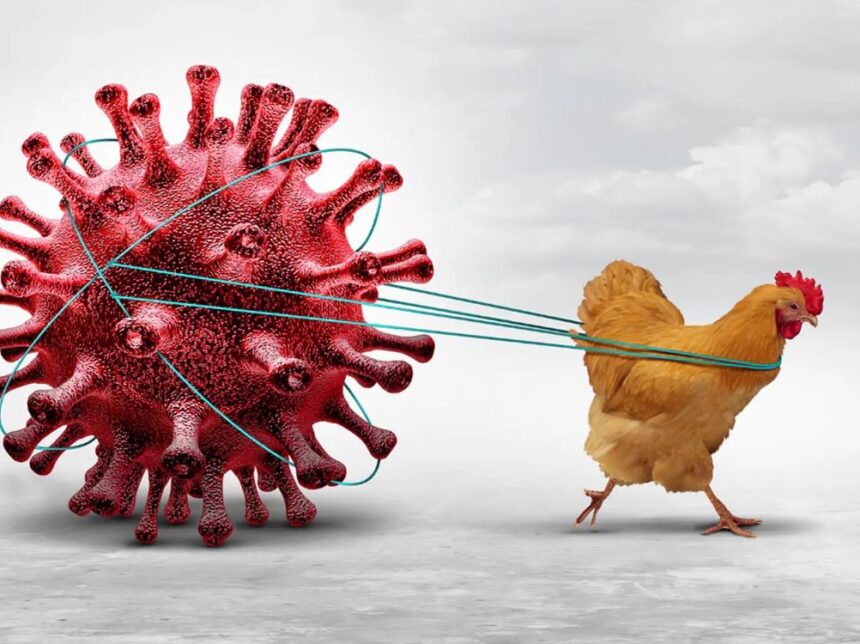The Center has asked all states to be aware of unusual deaths of domestic birds and chickens and share information with the Animal Husbandry Department immediately, so that steps can be taken as per the National Action Plan for Avian Influenza.
An advisory issued by the National Center for Disease Control (NCDC) and the Department of Animal Husbandry and Dairying on May 25 said that by 2024, four states – Andhra Pradesh (Nellore), Maharashtra (Nagpur), Kerala (Alappuzha, Kottayam and Outbreaks of avian flu have already been reported in Kukut (poultry) in Pathanamthitta districts) and Jharkhand (Ranchi).
“Given that avian influenza (H5N1) infection is very dangerous and has a high probability of spreading to humans, it is necessary to take all necessary measures to reduce and prevent the spread of this infection,” the advisory said. It states that the avian influenza virus (bird flu virus) is commonly spread among migratory birds.
H5N1 is the major avian influenza virus. Outbreaks of avian influenza in poultry birds in India have been reported since 2006 and are being jointly investigated by the Department of Animal Husbandry and Health (IDSP, NCDC).
States and Union Territories have been advised to sensitize all health care workers/private practitioners about the symptoms of avian influenza cases.
“If avian flu is confirmed in birds in your state, separate wards/beds in hospitals may be required to deal with any suspected cases,” the joint advisory said. In states where there are more cases of avian flu, the joint advisory has asked for some additional measures.
In the advisory, in the states where there is an active outbreak of Avian Influenza, samples should be collected from surveillance workers on the fifth and tenth day after sanitation operations for H5N1 testing. States are asked to conduct surveillance for suspected human cases and conduct 10-day health check-up for herders and poultry workers.
States have been asked to enhance information, education and communication tools among the general public about preventive measures. Surveillance should be enhanced in wet markets, slaughterhouses, poultry farms etc. for Avian Influenza in collaboration with NCDC, ICMR and DAHD, as well as sewage samples, water bodies, crows.
About Avian Flu
Avian influenza or bird flu refers to the disease caused by infection with avian (bird) influenza (flu) Type A viruses. These viruses naturally spread among wild aquatic birds worldwide and can infect domestic poultry and other bird and animal species. Bird flu viruses do not normally infect humans. However, sporadic human infections with bird flu viruses have occurred.

















